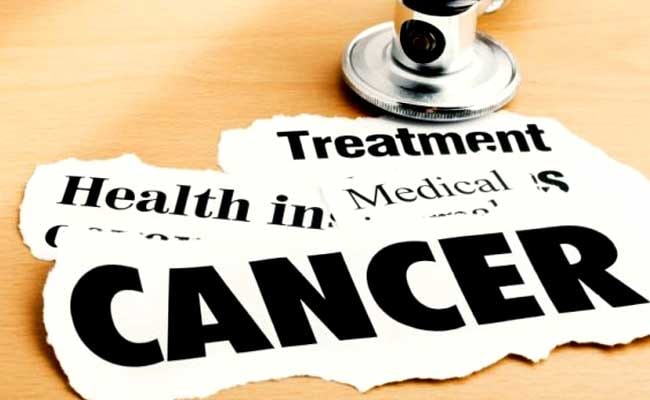
Photo for representational purpose only.
Researchers at Harvard Medical School have found how certain tumours develop a taste for fat over sugar and that one way to kill them could be starving them of their life-sustaining fuel.
The findings showed how a mechanism that normally keeps fat burning in check goes awry in some cancers, revving up fat consumption and fuelling tumour growth.
"This really represents a new frontier in looking at the metabolism of cancer," said senior author of the study Marcia Haigis, Associate Professor of Cell Biology.
"Understanding the molecular handle of this pathway is the first step toward translating the basic work into therapy," Haigis said.
Specifically, the study, published in the journal Molecular Cell, found that a protein called prolyl hydroxylase 3 (PHD3) appears to be a key regulator of the delicate balance inside cells that dampens fat burning.
That protein, the research showed, is abnormally low in certain forms of cancer - a finding that can help lay the ground for development of therapies that work by starving tumours of their fuel.
Two forms of cancer -- acute myeloid leukemia and prostate cancer -- had by far the lowest PHD3 levels, the analysis showed.
To test their hypothesis that these particular cancers needed fats to survive and that PHD3 was a key regulator in the fat-burning process fuelling tumour growth, the researchers restored to normal the levels of PHD3 in a line of cancer cells and in mice.
The tumours not only stopped growing, they died.
"That was really exciting," Haigis said.
"We've altered a lot of metabolic pathways in cancer, and this is one of the few pathways we've modulated where we really see the tumours die. They are so dependent on fat oxidation that they die," Haigis noted.
Before this discovery can move ahead to the clinic, she said, more basic research needs to be done, both in animal models and in cancer cells taken from patients, to understand why certain tumours depend on fat.
The findings showed how a mechanism that normally keeps fat burning in check goes awry in some cancers, revving up fat consumption and fuelling tumour growth.
"This really represents a new frontier in looking at the metabolism of cancer," said senior author of the study Marcia Haigis, Associate Professor of Cell Biology.
"Understanding the molecular handle of this pathway is the first step toward translating the basic work into therapy," Haigis said.
Specifically, the study, published in the journal Molecular Cell, found that a protein called prolyl hydroxylase 3 (PHD3) appears to be a key regulator of the delicate balance inside cells that dampens fat burning.
That protein, the research showed, is abnormally low in certain forms of cancer - a finding that can help lay the ground for development of therapies that work by starving tumours of their fuel.
Two forms of cancer -- acute myeloid leukemia and prostate cancer -- had by far the lowest PHD3 levels, the analysis showed.
To test their hypothesis that these particular cancers needed fats to survive and that PHD3 was a key regulator in the fat-burning process fuelling tumour growth, the researchers restored to normal the levels of PHD3 in a line of cancer cells and in mice.
The tumours not only stopped growing, they died.
"That was really exciting," Haigis said.
"We've altered a lot of metabolic pathways in cancer, and this is one of the few pathways we've modulated where we really see the tumours die. They are so dependent on fat oxidation that they die," Haigis noted.
Before this discovery can move ahead to the clinic, she said, more basic research needs to be done, both in animal models and in cancer cells taken from patients, to understand why certain tumours depend on fat.
Track Latest News Live on NDTV.com and get news updates from India and around the world

